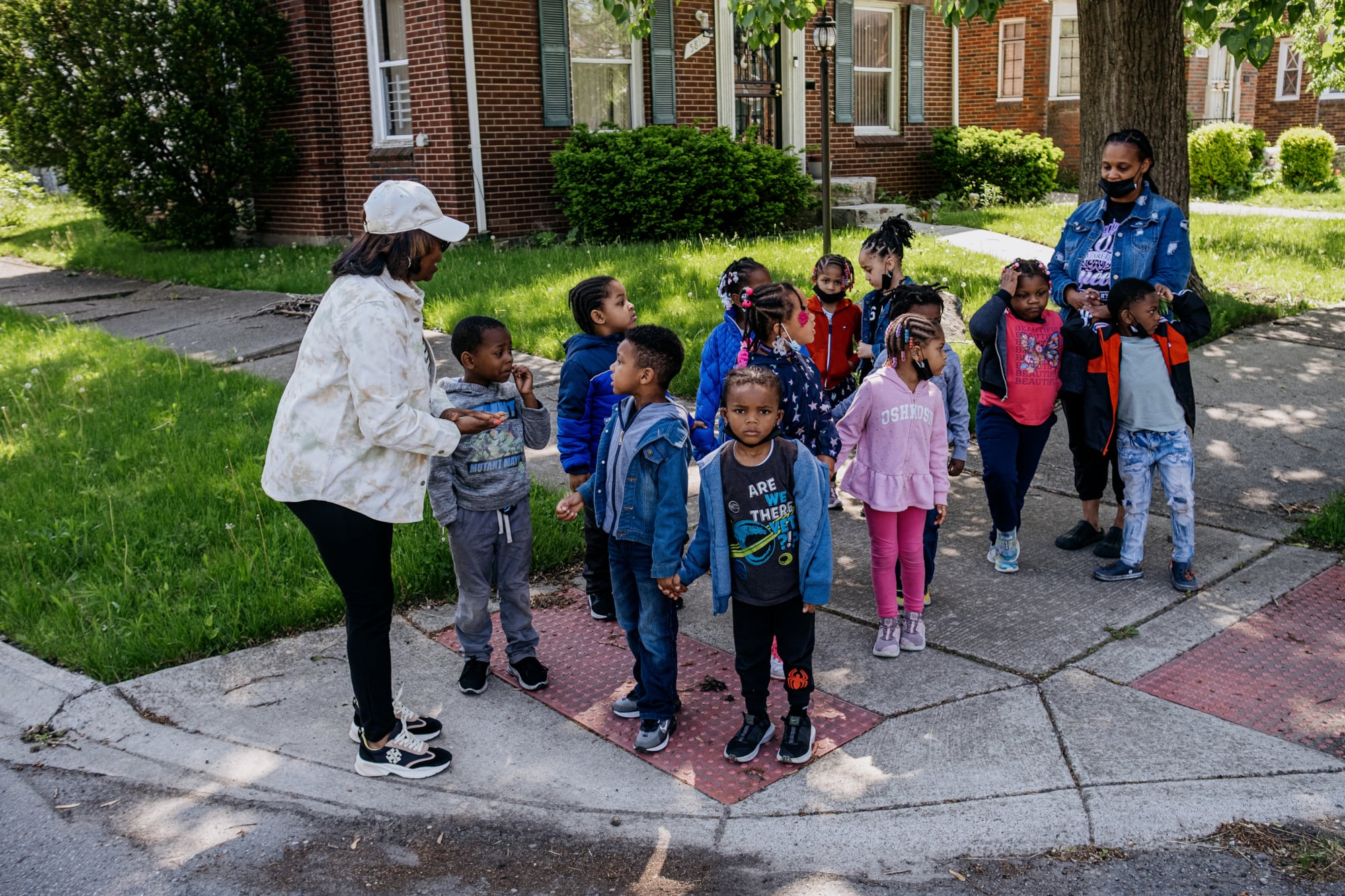Sign up for Chalkbeat Detroit’s free newsletter to keep up with the city’s public school system and Michigan education policy.
A record number of children are enrolled in Michigan’s free preschool program this year, the second in which the state has invested in making it available for all children regardless of income.
But programs across the state still have plenty of openings, a sign that many families don’t know the program is available.
During a press conference Tuesday morning, officials from the Michigan Department of Lifelong Education Advancement and Potential announced that 51,000 children are enrolled in the Great Start Readiness Program. That’s an increase of 8,900 over last year.
During the 2023-24 school year, the last before the state launched its PreK for All initiative, 36,466 children were enrolled. A bipartisan effort in the Michigan legislature has invested additional money in the state budget to fund the expansion, which began with the 2024-25 school year.
The PreK for All initiative has been aimed at removing income and other restrictions on the Great Start Readiness Program, essentially allowing any child to enroll whether they are from a low-income home or not. Gov. Gretchen Whitmer, in her 2023 proposal to gradually expand to a universal preschool program in Michigan, said it would “ensure children arrive at kindergarten ready to learn.”
The expansion comes as Michigan’s K-12 system has faced criticism because students have struggled on state and national exams at a time when many other states are showing more impressive gains.
The Great Start Readiness Program is one of four preschool programs in which the state is expanding access by eliminating income restrictions. The others include the federal Head Start program, developmental kindergarten, and early childhood special education.
Beverly Walker-Griffea, director of MiLEAP, said families who enroll their children in PreK for All programs save an estimated $14,000 each year. That’s crucial, she said, “at a time like this, when the cost of just about everything is going up.”
Blake Kish is a parent of six children under the age of 8. Two have been enrolled in the Great Start Readiness Program at St. George School in Flint Township.
“The PreK For All has been a blessing, of course, for the household, but mostly for the kids,” Kish said.
“I recommend any parent that has a child that is 4 years old, get your child in this program. Get your kid in the classroom, give them that head start, give them the winning edge,” Kish said. “We are shaping the future of Michigan.”
Emily Laidlaw, deputy director for early education at MiLEAP, noted that “children who attend a high quality pre-K program are more likely to graduate from high school, go on to college or career training and start their career strong.”
“Pre-K teaches critical social skills, including how to share, work and play together, and get along with others,” Laidlaw said.
Laidlaw said the state will continue to get the word out about the program to families across the state who have not yet enrolled.
Parents can visit Michigan’s PreK for All website to find out more information about enrolling their children.
Lori Higgins is the bureau chief for Chalkbeat Detroit. You can reach her at lhiggins@chalkbeat.org.







